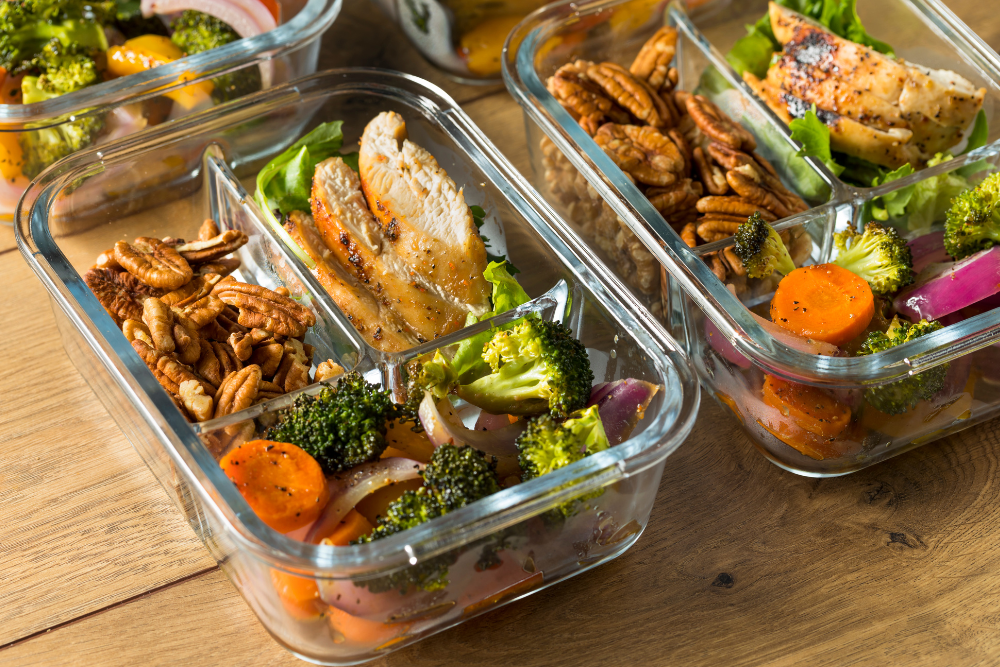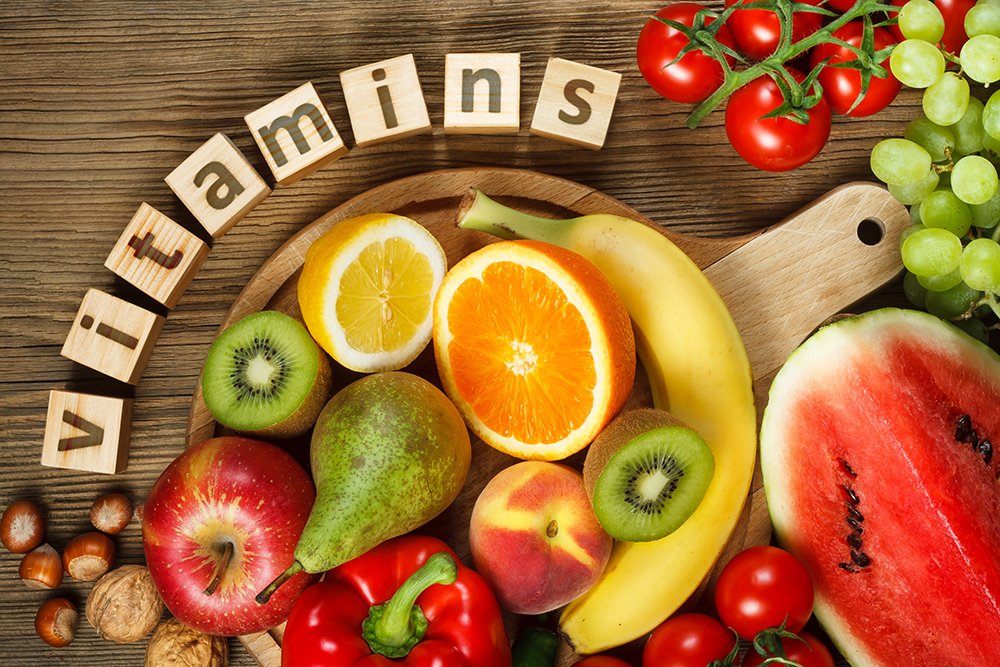
“I’m eating for two” is a common joke among pregnant women. Proper nutrition during pregnancy is nothing to chuckle about. Eating more won’t increase your chances of delivering a healthy baby, but eating well can.
Baby Weight
It’s true that you need to increase your calorie intake while pregnant. Yet, contrary to popular belief, you don’t need to eat too much beyond your normal amount. “Gaining too much weight during pregnancy has been cited as one of the factors contributing to the obesity epidemic because it’s difficult to lose the weight postpartum,” said Brian T. Lovitt, DO, opens new tab, an OB-GYN with Meritas Health Pavilion for Women, opens new tab. “And, obesity carries with it a number of risks to mother and baby during pregnancy.” Those risks include gestational diabetes and high blood pressure.
“The additional caloric need during pregnancy for a nonobese mother is about one peanut and butter jelly sandwich a day, which is much less than what people usually think of when ‘eating for two,’” Dr. Lovitt said. “For overweight mothers-to-be, it’s less.”
How much weight you should gain differs from woman to woman and depends mostly on your prepregnancy weight and body mass index. “For nonobese women, we recommend gaining 25-35 pounds,” Dr. Lovitt advised. “As prepregnancy weight/BMI increases, that number comes down. On the other hand, a very thin woman might need to gain more.”
Power Foods
Eating foods packed with protein, folic acid, iron and calcium before, during and after pregnancy can keep you and your little one healthy.
Find these nutrients in everyday foods such as:
- Avocados
- Beans and lentils
- Eggs
- Fish
- Fruits and vegetables (especially green, leafy ones)
- Nonfat milk, cheese and yogurt
- Nuts and seeds
- Olive, sunflower and canola oil
- Peanut butter
- Skinless chicken
- Whole-grain and fortified cereals, breads, pastas and oatmeal
“While getting nutrients from food is preferred, it’s not always feasible,” Dr. Lovitt said. “I encourage women to take prenatal vitamins during their reproductive years. It’s especially important for a mom-to-be to start increasing her folic acid intake prior to pregnancy. This vitamin is crucial to early processes, and its absence can result in significant birth defects, often completed before pregnancy is known.”
“I remind patients that what they do in those nine months impacts another human being who may live 95 years.”
Taking an inexpensive over-the-counter prenatal vitamin regularly throughout your adult life can give your body the nutrients it needs. “If you’re planning a pregnancy, start taking prenatal vitamins with folic acid at least three months before trying to conceive,” Dr. Lovitt advised.
The bottom line? Be healthy. “When looking together at weight gain during my patient's pregnancy, whether too much or too little, I regularly ask, ‘Are you being healthy?’ and ‘Tell me what eating healthy means?’ If you’re eating a well-balanced diet and not over-indulging on ice cream and fast food, then the number on the scale isn't that important.”
It’s not easy to stay motivated and eat a nutritious, well-balanced diet in general, let alone for nine months. “I remind patients that what they do in those nine months impacts another human being who may live 95 years,” Dr. Lovitt said. “Most moms appreciate that importance and make the effort necessary to help both their health and their baby’s.”
Explore our maternity care, opens new tab and sign up for our pregnancy and childbirth classes, which are free and open to families delivering at North Kansas City Hospital.
Related Articles

November 7, 2024
10000 Steps Good Enough
How many steps did you log today? It’s a popular question, and the gold standard answer is 10,000. Yet, depending on your health goals, you may need to pick up the pace.

June 1, 2019
5 Day Meal Prep
Who says eating healthy has to be difficult? One of our Registered Dietitians shows us how easy it can be to prep lunches for a busy week.

June 1, 2019
5 Foods With Health Benefits
Dark ChocolateBoost your mood and your memory (think antioxidants) by savoring dark chocolate. It may also help your heart health. Just 1 oz. is all it takes...

December 9, 2019
5 Free Indulgences
Are you ready for the hubbub of the holidays? The season’s festivities are always fun, but they can also wear you down. If your holiday spirit needs rechargi...

June 1, 2019
5 Minutes to a Happier You
Feeling stressed, angry or anxious? Head to the great outdoors. A new study has found that a five-minute walk can work wonders for your mood.The more natural...

July 27, 2022
5 Must Have Nutrients
Vitamins and minerals do a body good, but who has time to figure out which foods offer what benefits? This short list of five essential nutrients, opens new ...

